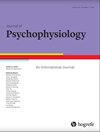静息状态和任务相关的前额叶和迷走神经活动对认知表现的预测作用
IF 0.9
4区 心理学
Q4 NEUROSCIENCES
引用次数: 0
摘要
摘要:认知任务的绩效效率是有效性(即准确性)和认知努力的结合。静息状态和任务相关的自主神经和皮层活动,连同心理变量,可能是工作效率的有效预测指标。本研究旨在调查这些变量对年轻人在一系列认知任务中预测表现的影响。76例(年龄:23.96±2.69岁;51.3%的女性志愿者完成了几份心理问卷,并完成了一系列注意力和执行功能任务。静息状态和任务相关的前额叶和自主神经活动分别通过时域和连续波2通道功能近红外光谱(fNIRS)和便携式心电图(ECG)监测系统收集。一组机器学习(ML)方法被用于(i)预测每个认知任务的表现,同时最小化和量化预测误差,以及(ii)定量评估最影响认知结果的预测因子。结果显示,完美主义特质,以及静息状态和任务相关的自主神经和皮层活动,预测了大多数任务的表现,部分支持了之前的证据。我们的研究结果增加了认知任务中表现效率的心理生理决定因素的知识,并为机器学习方法在检测认知神经科学中重要预测因素的作用提供了初步证据。本文章由计算机程序翻译,如有差异,请以英文原文为准。
The Predictive Effects of Resting-State and Task-Related Prefrontal and Vagal Activity on Cognitive Performances
Abstract: Performance efficiency in cognitive tasks is a combination of effectiveness, that is, accuracy, and cognitive effort. Resting-state and task-related autonomic and cortical activity, together with psychological variables, may represent effective predictors of performance efficiency. This study aimed to investigate the impact of these variables in the prediction of performance during a set of cognitive tasks in a sample of young adults. The 76 participants (age: 23.96 ± 2.69 years; 51.3% females) who volunteered for this study completed several psychological questionnaires and performed a set of attention and executive functions tasks. Resting-state and task-related prefrontal and autonomic activity were collected through a Time-Domain and a Continuous Wave 2-channel Functional Near-Infrared Spectroscopy (fNIRS) and a portable Electrocardiogram (ECG) monitoring system, respectively. A set of Machine Learning (ML) approaches were employed to (i) predict the performance of each cognitive task, while minimizing and quantifying the prediction error, and to (ii) quantitatively evaluate the predictors that most affected the cognitive outcome. Results showed that perfectionistic traits, as well as both resting-state and task-related autonomic and cortical activity, predicted performance for most of the tasks, partially supporting previous evidence. Our results add to the knowledge of psycho-physiological determinants of performance efficiency in cognitive tasks and provide preliminary evidence on the role of ML approaches in detecting important predictors in cognitive neuroscience.
求助全文
通过发布文献求助,成功后即可免费获取论文全文。
去求助
来源期刊

Journal of Psychophysiology
医学-神经科学
CiteScore
2.60
自引率
7.70%
发文量
25
审稿时长
>12 weeks
期刊介绍:
The Journal of Psychophysiology is an international periodical that presents original research in all fields employing psychophysiological measures on human subjects. Contributions are published from psychology, physiology, clinical psychology, psychiatry, neurosciences, and pharmacology. Communications on new psychophysiological methods are presented as well. Space is also allocated for letters to the editor and book reviews. Occasional special issues are devoted to important current issues in psychophysiology.
 求助内容:
求助内容: 应助结果提醒方式:
应助结果提醒方式:


